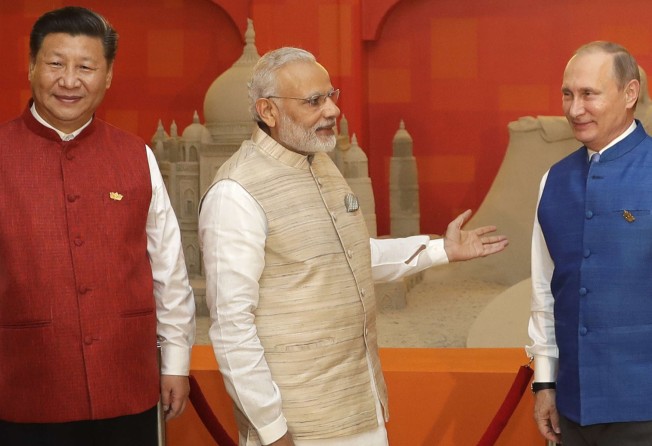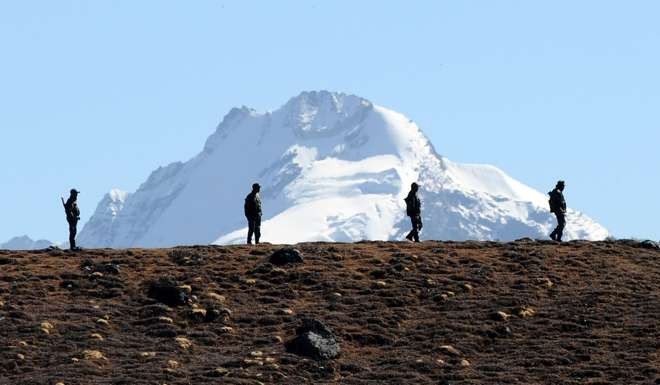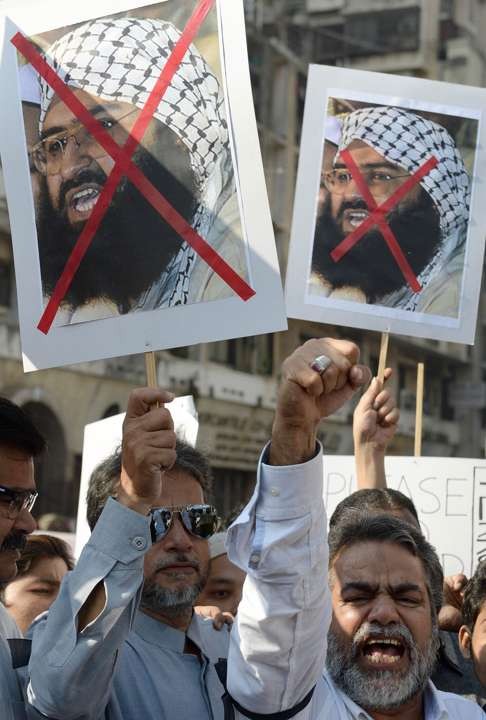In balancing US and China relations, India needs to focus on economics
Neeta Lal says India knows economic links with China are too valuable to risk over other geopolitical tussles, which calls for a delicate balancing act amid deepening ties with the US

The year 2016 witnessed a subtle yet significant recalibration of China-India ties. Though Narendra Modi and Xi Jinping (習近平) had several opportunities to engage at multilateral forums like the G20, and the BRICS and Shanghai Cooperation Organisation summits, relations between the neighbours seem to have hurtled downhill, as both leaders often found themselves on opposing sides while pursuing their respective foreign policy agendas.
In a bid to assert regional primacy, India resumed testing its intercontinental Agni V missile. With a powerful strike range of about 5,500km, the message to China is that India is capable of hitting targets anywhere across its vast territory. Further, defence cooperation with Vietnam, a civil nuclear deal with Japan and direct references to the South China Sea in bilateral statements have underlined an increasingly assertive India under nationalist Prime Minister Modi.
India has also campaigned against China’s opposition to its membership of the Nuclear Suppliers’ Group, lack of enthusiasm for India’s claim for permanent membership of the UN Security Council, and its block on UN sanctions against Maulana Masood Azhar – chief of Jaish-e-Mohammed, an extremist Islamist group blamed for several attacks on Indian soil. India would be averse to abandon the gains of a growing economic partnership that China also remains keen to sustain, but shifting Asian power equations have created fresh fissures in bilateral ties.

Beijing is also rapidly developing the China-Pakistan Economic Corridor, part of the “One Belt, One Road” initiative, which India feels is likely to be a threat to national security. Territorial disputes also continue to create rancour, with the border issue remaining as fraught as ever decades on, amid sporadic skirmishes in the mountainous reaches of Arunachal Pradesh.

Amid this geopolitical churn, India sees a growing political and economic convergence with the United States, with which it enjoys robust trade ties. Big-ticket military and defence alliances are also under way. Washington has helped Delhi contain cross-border terrorism from Pakistan while publicly buttressing India’s membership of the Security Council and the NSG. India and the US share a common goal of ensuring the safety and security of the sea lanes in the Indo-Pacific. The two have also decided “in principle” to sign a logistics support agreement allowing US and Indian militaries to share facilities for refuelling, supplies and spares.
Watch: Trump questions US acceptance of one-China policy
But India can’t dismiss the urgency of maintaining cordial relations with a powerful neighbour like China. And although US President-elect Donald Trump’s brusqueness towards Beijing – while describing India as a “strategic trading power” and “important Pacific partner”– may please Delhi, it would be naive to assume that it will reap any significant benefits from US-China hostility. It is more likely that Trump is biding his time to work out a formula that will give him economic and political leverage over Beijing.
Despite their power tussles, bilateral US-China relations will assume far greater importance for the two superpowers than their relations with India. Delhi recognises this and, to find resonance with both, should try to regain its economic growth trajectory and emerge as an attractive global investment destination. And while expanding its partnership with the US, Delhi will also have to learn to “manage” Beijing. A tightrope act for sure, but one that India will simply have to walk.
Neeta Lal is a New Delhi-based senior journalist